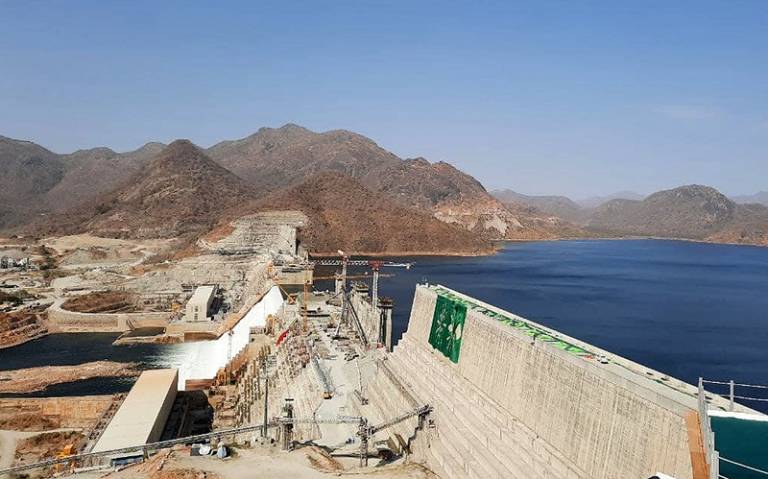Modelling study could help Nile countries manage major new dam
11 January 2023
Countries affected by the River Nile’s Grand Ethiopian Renaissance Dam (GERD) could benefit economically under cooperative adaptive management of the Nile that allows for different climate change scenarios, finds a study involving UCL researchers.

The GERD will be Africa’s largest hydroelectric power plant in terms of installed power capacity when completed. Ethiopia, Sudan and Egypt, which are on the banks of the Nile Basin, have been locked in a dispute since construction started in 2011, specifically on how to fill the resulting reservoir and how to operate it during droughts.
Published in Nature Climate Change, the paper describes a new river basin analytical modelling framework for the Nile that adapts according to climate change uncertainties in the region. It combines reservoir management, economy-wide performance and artificial intelligence to design plans for the GERD’s filling and operation that can adapt according to an unpredictable future.
Co-author Dr Alvaro Calzadilla (UCL Institute for Sustainable Resources) said: “High uncertainty exists around the future impact of climate change on the hydrology of the Nile as well as on the economic development trajectory and population growth of the countries it flows through. A non-adaptive management plan for the dam that is based on current and past conditions and doesn’t allow for future change would perform poorly and give misleading signals to policymakers.”
The authors say that using an adaptive management plan to operate large dams such as the GERD allows a multi-dimensional approach that encourages collaboration and boosts economic performance of the dam.
The framework uses unique joint river system and economy modelling simulators with artificial intelligence to allow experts to estimate the economic and engineering performance under various climate change projections and scenarios and design efficient solutions.
Dr Calzadilla continued: “The framework shows that we can improve economic and infrastructure resilience through cooperative and adaptive planning, and the benefit is particularly substantial under climate change projections with the most extreme hydrology changes to the Nile.”
Lead author Dr Mohammed Basheer (University of Manchester) said: “Nile negotiations have aimed to produce static long-term agreements, but there is high uncertainty on the medium and long-term impacts of climate change on the basin’s rainfall, streamflow, temperature and socio-economic systems; this paper proposes an analytical approach that can help design adaptive agreements given these uncertainties.”
The paper was written by researchers at the University of Manchester, UCL and other institutions.
Links
- Research paper ‘Cooperative adaptive management of the Nile River with climate and socio-economic uncertainties’ in Nature Climate Change
- Dr Alvaro Calzadilla Rivera's academic profile
- UCL Institute for Sustainable Resources
- The Bartlett, UCL Faculty of the Built Environment
Image
- iStock: Grand Ethiopian Renaissance Dam. Credit: Getnet tesfamaria
Source
Media contact
Kate Corry
Tel: +44 (0)20 3108 6995
Email: k.corry [at] ucl.ac.uk
 Close
Close

